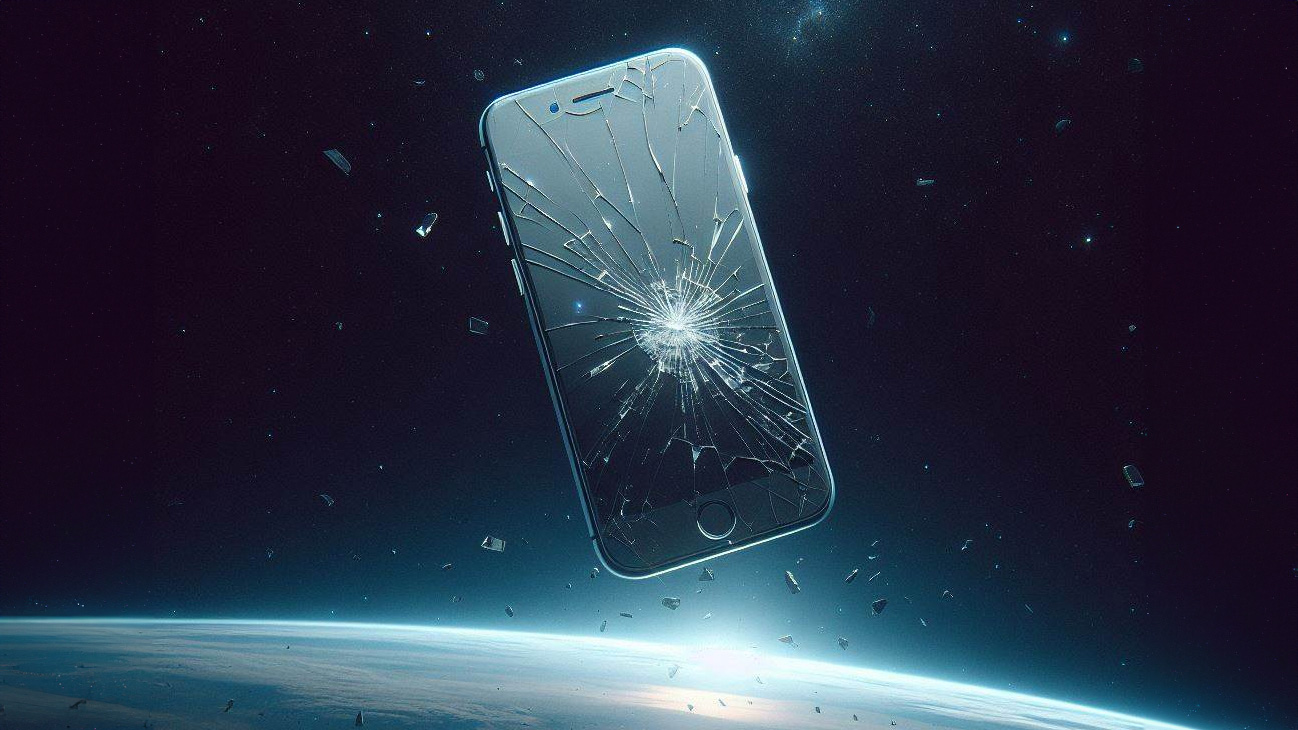'Apple's new policy is a step in the wrong direction.' Microsoft, Spotify, decry Apple's 'compliance' with new European app store rules
Apple's malicious compliance with new EU rules is ruffling feathers.

All the latest news, reviews, and guides for Windows and Xbox diehards.
You are now subscribed
Your newsletter sign-up was successful
What you need to know
- Recently, Apple changed its App Store rules on iOS devices to comply with new EU rules on digital platforms.
- Microsoft, Spotify, Epic Games, and others have decried the new policies as a step backwards.
- Microsoft is aiming to set up a mobile gaming store on iOS and Android, despite Apple's anti-competitive blocks on Xbox Game Pass.
Apple's new App Store rules designed to comply with new European legislation are under attack, as the firm seeks to profit from poorly worded clauses in the Digital Markets Act.
Apple and others have been designated so-called "gatekeeper" companies, which subjects them to rules designed, in theory, to promote competition within digital platforms. However, Apple has managed to skirt the bulk of the new rules, by imposing a new tax on developers who choose to exist on third-party storefronts.
The new EU rules are essentially forcing Apple to open itself up to side-loading and third-party storefronts, similarly to platforms like Windows 11. On Windows 11, you, I, or anyone can create and sell apps without having to pay a fee to Microsoft. The same is true on Android, however, Google doesn't exactly make it easy for third-party apps and services to be visible, as it aggressively controls default apps and services on its platform. The EU already forced Google to add an search engine choice when setting up a new phone on Android, but we're a long way from educating users on the fact third-party stores potentially exist, such as the Galaxy Store on Samsung phones.
Apple is a different battleground all together. Apple blocks services like Xbox Game Pass and NVIDIA GeForce Now, since they would have to compete more directly for users' money, if they had a choice where to play games on its platforms. Microsoft has been hoping to grow its own third-party app and mobile game store on iOS and Android, and has been banking on the European Commission to help crack open iOS devices to that end. Sadly, it looks as though Apple has found a way to avoid complying fully.
We believe constructive conversations drive change and progress towards open platforms and greater competition. Apple's new policy is a step in the wrong direction. We hope they listen to feedback on their proposed plan and work towards a more inclusive future for all. https://t.co/mDRI5KPJf6January 29, 2024
Microsoft Gaming President Sarah Bond called the new rules "a step in the wrong direction," and called on Apple to "listen to feedback" on the new rules. Spotify's Daniel Ek was a little less diplomatic, posting a large blog post calling out Apple for years of "bad behavior."
"Under the new terms, if we stay in the App Store and want to offer our own in-app payment, we will pay a 17% commission and a 0.50 cent Euro Core Technology Fee per install and year," Ek continued, "this equates for us to being the same or worse as under the old rules. And if we managed to remove our app from the App Store and only existed in the Alternative App Store, that would still not work. With our EU Apple install base in the 100 million user range, this new tax on downloads and updates could skyrocket our customer acquisition costs, potentially increasing them tenfold. This, as we have to pay on every install or update to our free or paid app, even for those who no longer use the service."
To create an alternative App Store you have to: "Provide Apple a stand-by letter of credit from an A-rated financial Institution of €1,000,000 to establish adequate financial means in order to guarantee support for your developers and users." 🤣 pic.twitter.com/1uFjKTvnb5January 26, 2024
Mozilla, Epic Games, and various other companies have also lined up to attack Apple for its new rules, which create various barriers, hurdles, and hidden taxes for developers who dare to build apps that aren't fully tying themselves to Apple's ecosystem. Apple, for example, is requesting that anyone trying to create a storefront on iOS needs to guarantee a credit line of 1 million euros to "support developers." In Windows 11 terms, it would be like telling companies like Steam, GOG, and Epic Games they can't set up a store on Windows without following a range of arbitrary rules.
All the latest news, reviews, and guides for Windows and Xbox diehards.
The EU's DMA also stipulates that Apple needs to allow alternative browser engines on iOS. Right now, browser firms are forced to use Apple's despised webkit platform. Apple is trying to make it more difficult for third-party browser engines like Chromium to create offerings on iOS with a range of similar, arbitrary barriers. "Apple’s proposals fail to give consumers viable choices by making it as painful as possible for others to provide competitive alternatives to Safari. This is another example of Apple creating barriers to prevent true browser competition on iOS," Mozilla's Damiano Demonte lamented (via The Verge).
Epic Games' CEO and Fortnite co-owner also lambasted Apple, "Under what possible theory of antitrust regulation is it acceptable for a monopoly to decide what companies are allowed to compete with it, and on what terms they can compete? Apple makes a mockery of free market competition."
Malicious compliance
Apple's long-standing anti-competitive, anti-consumer stance has made it an incredibly wealthy company over the past few decades, building an ecosystem that hinges entirely offering a sub-par experience while hiding behind excuses like "privacy" while raising the spectre of imaginary viruses or hackers.
Apple's taxes on developers and compliance burdens make it impossible for even the biggest companies to compete with its default offerings, giving them a wholly unfair advantage that also erodes the experience for users who dare to use competing services. I've seen people unironically praise Apple for giving musicians a better cut than Spotify on its platform, glossing over the fact Apple's tax burden it places on Spotify and other music services is money that could go towards artists instead. If you're a subscriber of NVIDIA GeForce Now or Xbox Game Pass, Apple doesn't want you to have access to those services on its platform, despite not offering a similar service of its own.
Apple's behavior reduces consumer choice, increases prices, and stunts innovation, and it's about time regulators grew a pair and did something about it.

Jez Corden is the Executive Editor at Windows Central, focusing primarily on all things Xbox and gaming. Jez is known for breaking exclusive news and analysis as relates to the Microsoft ecosystem — while being powered by tea. Follow on X.com/JezCorden and tune in to the XB2 Podcast, all about, you guessed it, Xbox!
